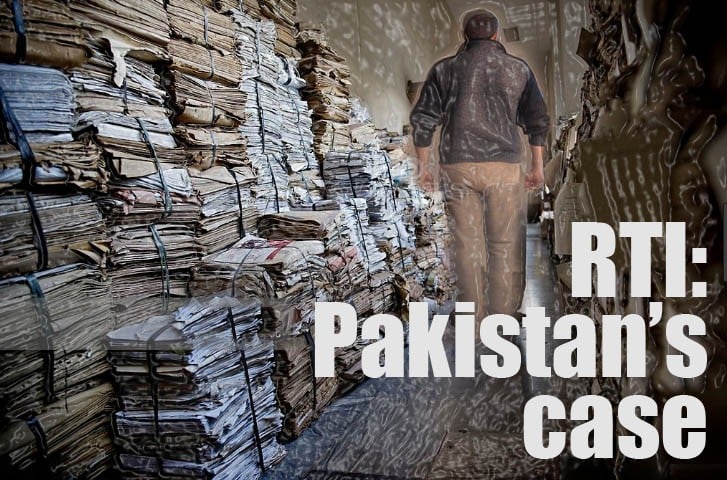

It was exactly twenty years ago, in 1997, that Pakistan became the first country in the whole of South Asia to enact a law on freedom of information (FOI). In 2017, it can safely claim to have covered a lot of distance from the first generation FOI laws to the second generation right to information (RTI) laws.
In 2010, the right to information was made a part of the constitutional scheme by an amendment. Now under Article 19-A, "Every citizen shall have the right to have access to information in all matters of public importance subject to regulation and reasonable restrictions imposed by law."
As of today, there are special updated RTI laws at both the federal and provincial levels "in order to allow Pakistani citizens to exercise their right to access public data". Only Balochistan has the most dated FOI Act, which is as old as 2005.
So, how has Pakistan fared in terms of empowering the people through this law? In today’s Special Report, we at TNS want to look at the access and obstacles to the application of this law, both at the provincial and federal levels.
On paper, it looks all good. As far as the idea is concerned, there is huge potential of people seeking information to expose scams and corruption in the government machinery, the wrong-doings in appointments and asking the bureaucrats, judges and politicians to make their assets public. But, to start with, are the people even aware of this law? If yes, are they making use of it in good numbers? Are they being given the information through "proactive disclosure"? What is the structure of the information machinery like? Are there any bureaucratic hurdles or budgetary constraints in putting it in place? What about the culture of secrecy? What about exemptions from this right? What about journalists using the RTI laws for their stories?
Right across the border, in India, the same law is being used rather aggressively by lay people and journalists alike. But over there, hundreds of RTI activists have also been killed. Yet, the deaths have not dampened the spirit of the people, if only because the law itself was set into motion as a result of a social movement.
It is time to see why is Pakistan lagging so far behind both in terms of awareness and applying the law which is not that bad. These are some of the questions that we have addressed in our Special Report today.
Read the Special Report: RTI: Pakistan’s case